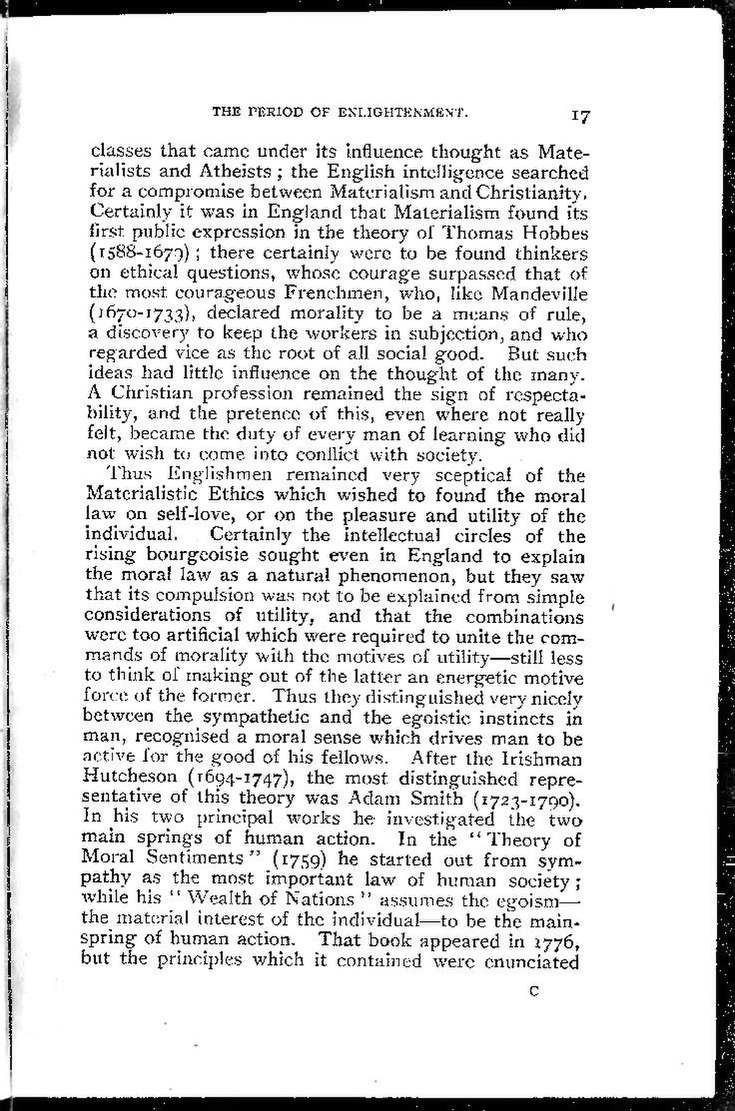classes that came under its influence thought as Materialists and Atheists; the English intelligence searched for a compromise between Materialism and Christianity. Certainly it was in England that Materialism found its first public expression in the theory of Thomas Hobbes (1588–1679); there certainly were to be found thinkers on ethical questions, whose courage surpassed that of the most courageous Frenchmen, who, like Mandeville (1670–1733), declared morality to be a means of rule, a discovery to keep the workers in subjection, and who regarded vice as the root of all social good. But such ideas had little influence on the thought of the many. A Christian profession remained the sign of respectability, and the pretence of this, even where not really felt, became the duty of every man of learning who did not wish to come into conflict with society.
Thus Englishmen remained very sceptical of the Materialistic Ethics which wished to found the moral law on self-love, or on the pleasure and utility of the individual. Certainly the intellectual circles of the rising bourgeoisie sought even in England to explain the moral law as a natural phenomenon, but they saw that its compulsion was not to be explained from simple considerations of utility, and that the combinations were too artificial which were required to unite the commands of morality with the motives of utility—still less to think of making out of the latter an energetic motive force of the former. Thus they distinguished very nicely between the sympathetic and the egoistic instincts in man, recognised a moral sense which drives man to be active for the good of his fellows. After the Irishman Hutcheson (1694–1747), the most distinguished representative of this theory was Adam Smith (1723–1790). In his two principal works he investigated the two main springs of human action. In the "Theory of Moral Sentiments" (1759) he started out from sympathy as the most important law of human society; while his "Wealth of Nations" assumes the egoism—the material interest of the individual—to be the mainspring of human action. That book appeared in 1776, but the principles which it contained were enunciated
